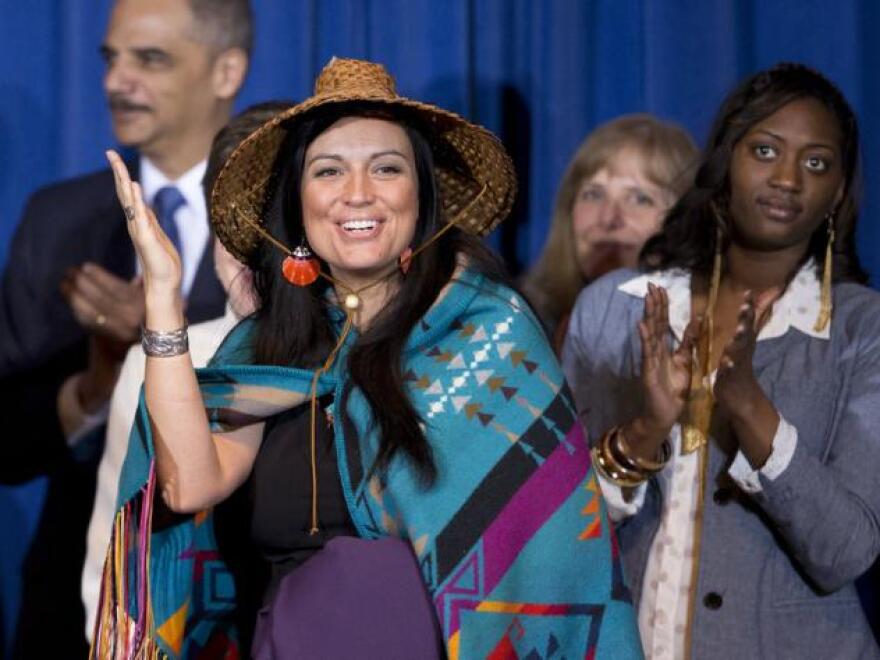Women who are victims of domestic violence or sexual assault often feel isolated.
In the last couple of decades, hospitals, rape crisis centers, even police, have been working – with varying degrees of success - to change that feeling, to give women a sense that they have a voice.
But Native American women who live on reservations are isolated even from those centers that counsel women about rape and domestic violence.
And often, if Native American women do travel to those centers, they feel a cultural dissonance when they ask for help.
Tarah Sanchez is the victim service program director for Nevada Urban Indians in Reno.
She told KNPR's State of Nevada that many women don't even report violence because they're afraid of retribution.
“I’ve had many native women come to me from rural communities and tell me that they feel that they especially cannot report the victimization to their tribes because a family member or friend will alert them before any charges can be brought against them,” she said.
There is also a distrust of the system and a lack of understanding of how the legal system works, which may be part of why Native American women are victims of abuse at a much higher rate than the rest of the population.
Until recently, tribal courts couldn’t prosecute offenders, especially when they came from outside the tribe.
In 2013, the reauthorization of the Violence Against Women Act allowed tribes to prosecute people from outside the tribe for violence committed against Native American women.
But the act doesn't cover everything, according to Deborah Parker a leader of the Washington State Tulalip Tribes north of Seattle. For example, a perpetrator that a woman doesn't know from outside the tribe must still be prosecuted by local police not by tribal justice.
The act also doesn't cover children. Parker told the story of a girl who tried to stop her father from physically abusing her mother, and was hurt by her father in the process. But when charges were filed against the father, he was only charged for the abuse of the woman not his daughter.
Parker said progress has been made, especially by many tribal police departments that work diligently to prosecute abusers.
“I really believe we’ve seen some significant changes," she said, "It is just going to take time for the victims to come forward and be able to trust the system."
Resources:
National Domestic Violence Hotline: 1-800-799-SAFE (7233)
National Sexual Assault Hotline: 1-800-656-HOPE (4673)
National Teen Dating Abuse Hotline: 1-866-331-9474
Las Vegas Metro Police Domestic Violence section: (702) 828-2955
SafeNest: (702)646-4981 or 800-486-7282
Rape Crisis Center: (702) 366-1640
Tarah Sanchez, the victim service program director for Nevada Urban Indians, Inc.; Deborah Parker, a leader of the Washington State Tulalip Tribes









